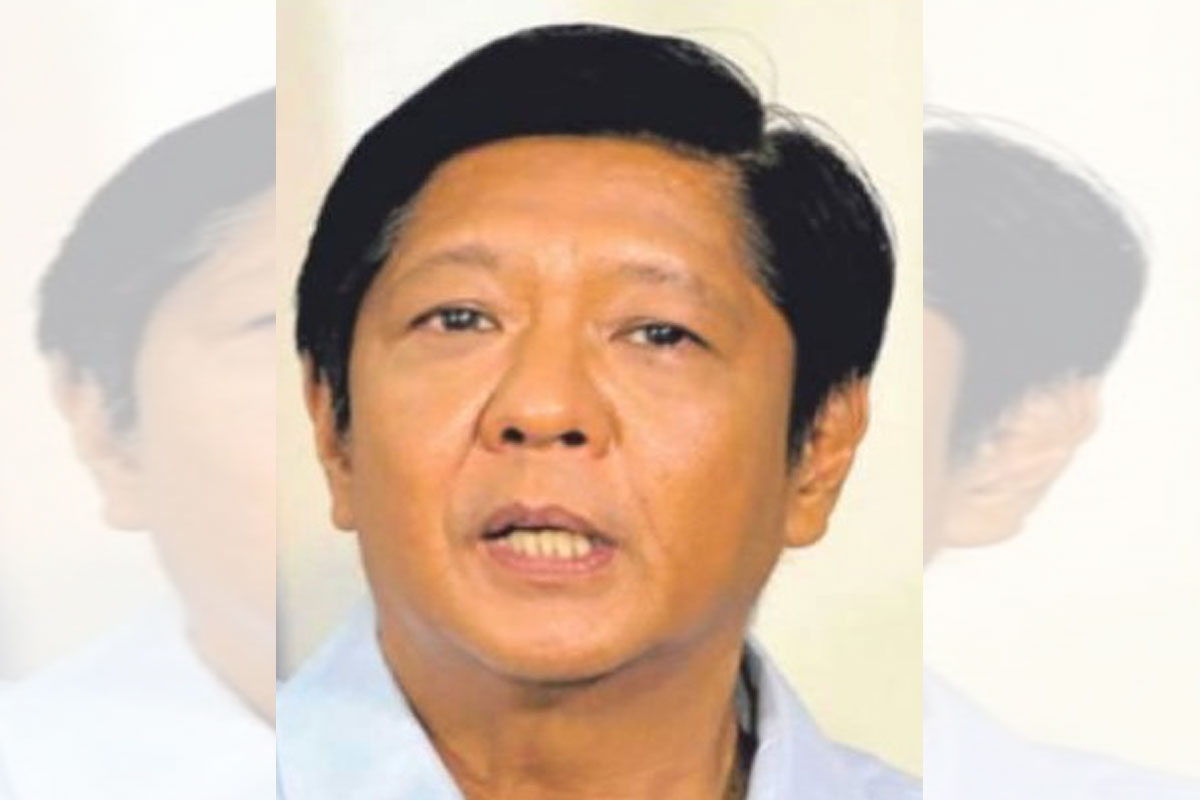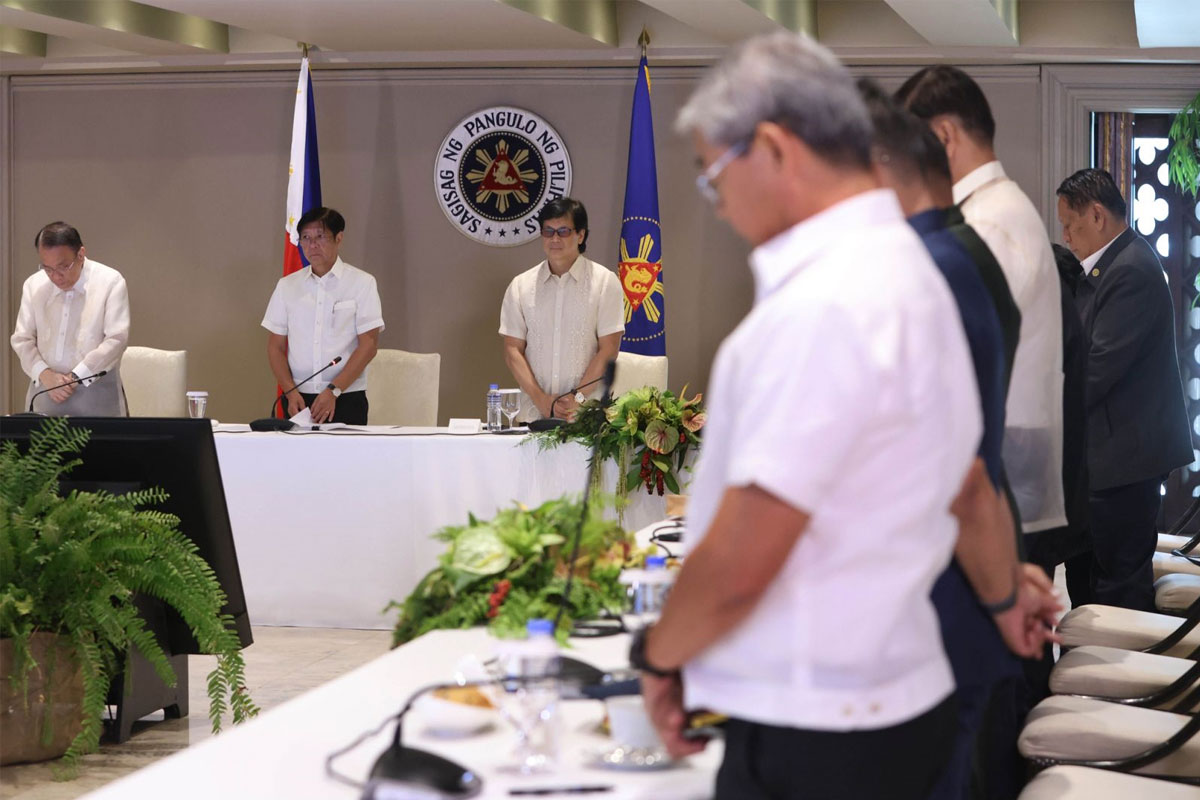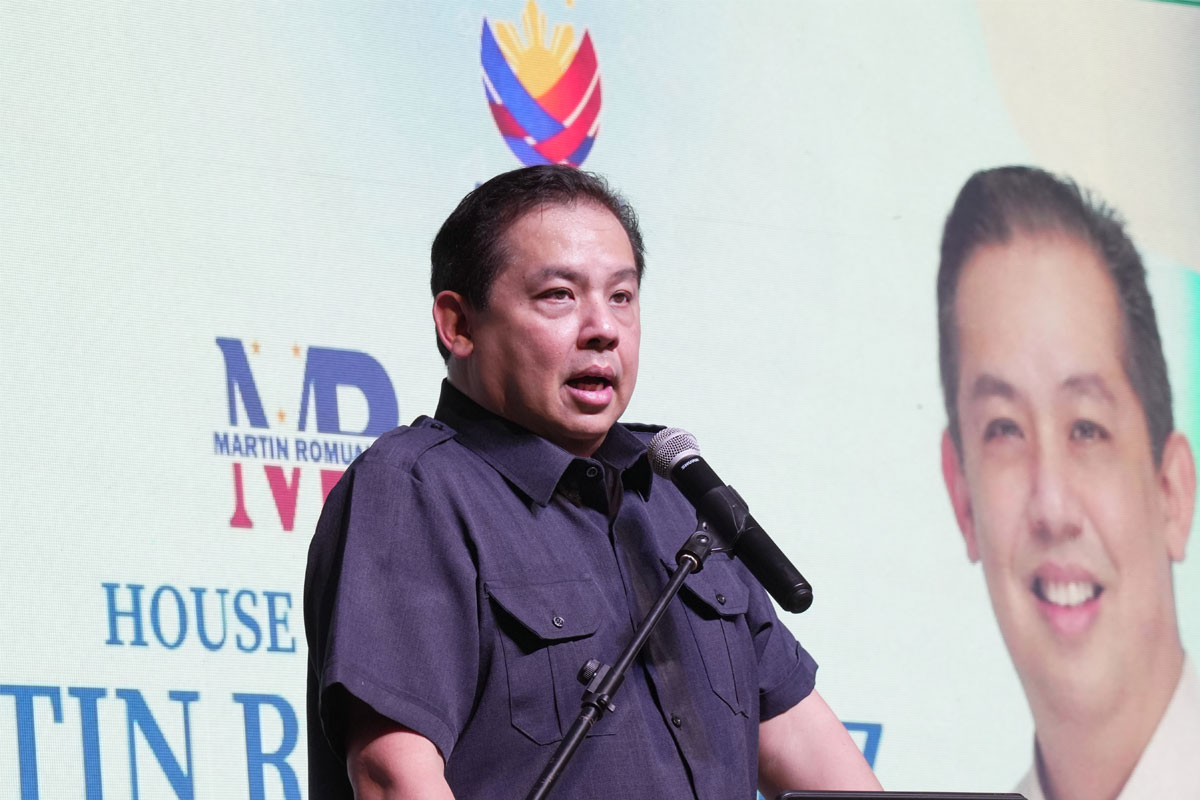
Highly-decorated Okubo brings R-PSB programs to NCRPO
 MAJOR General Edgar Alan O. Okubo, a highly-decorated officer with a ‘heart for the poor’ from the Philippine National Police Academy ‘Tagapagtaguyod’ Class of 1992, is bringing two major programs to the National Capital Region Police Office (NCRPO) which he believe will help further bring back the trust and confidence of the public to the Metro Manila police force, the Journal Group learned yesterday.
MAJOR General Edgar Alan O. Okubo, a highly-decorated officer with a ‘heart for the poor’ from the Philippine National Police Academy ‘Tagapagtaguyod’ Class of 1992, is bringing two major programs to the National Capital Region Police Office (NCRPO) which he believe will help further bring back the trust and confidence of the public to the Metro Manila police force, the Journal Group learned yesterday.
A known stickler for discipline, the official is taking the Revitalized-Pulis sa Barangay or R-PSB program and the Quality Service Lane or QSL program in all Metro Manila police districts, stations and police-community precincts.
To ensure that the police will be able to concentrate to people in need, Maj. Gen. Okubo has also ordered the removal of television sets in NCRPO police stations and PCPs.
He said that by removing TV sets in open areas of their headquarters and sub-stations, duty officers would be able to concentrate on their job to deal with people asking for assistance and making different inquiries.
Previously, TV sets that can be seen in the lobby of police stations and PCPs in the metropolis were aimed at providing the public some form of entertainment as they wait for their turn to be given assistance.
However, it has been observed that the purpose has been defeated with the presence of police officers unable to fully do their job of helping the citizenry as their attention is distracted by the televn shows.
There have been complaints that duty policemen can be seen glued to their television sets while watching basketball games or boxing events, telenovelas, variety shows or old movies even though people have arrived to seek their assistance.
This time, the TV sets that will be removed from the lobby of NCRPO stations and PCPs will be transferred to other parts of the area which are off-limits to the public like the mess halls and investigation rooms.
Maj. Gen. Okubo also emphasized that there are rules to be followed when it comes to watching TV sets in their stations and precincts. For one, only those who are on break and having their meals may watch TV.
Those monitoring news programs may do so inside other offices.
The official last week formally opened the training of 150 NCRPO policewomen who will be the new desk sergeants of different Metro Manila police stations and precincts.
The policewomen will be replacing male desk officers who will be sent to patrol duties instead, he said.
Last week, the official led the start of a 2-day Customer Relation Officer’s seminar for the policewomen who will be deployed as part of Maj. Gen. Okubo’s program to further improve the PNP Quality Service Lanes for the public in the metropolis.
The seminar aimed to equip the NCRPO female non-commissioned police officers with the correct attitude, skills and values as well as deeper knowledge on customer relation as they embark on their new field of work, said Colonel Julius Guadamor, the chief of the NCRPO Regional Training and Education Division.
NCRPO Regional Community Affairs and Development Division, Col. Romy Palgue likewise said the policewomen will have to really understand the proper way of communication and interacting with the public as required of a typical Customer Relations’ Officer in the country.
“They have to have the knowledge and skills to deal with people who will go to police stations to file a complaint or request police assistance as they will be the new face of police desk sergeants in the NCRPO,” the official added.
The official said his plan will initially apply only in 45 NCRPO stations: 16 in QCPD, 14 in MPD, 7 in SPD and 4 each in NPD and EPD.
The official added that he will also see to it that all NCRPO districts will have their respective R-PSB Teams that will immerse themselves in so-called ‘crime-prone and depressed areas’ to talk with the people and understand what are their real concerns.
Maj. Gen. Okubo supervised the highly-successful R-PSB program of the Police Regional Office 11 in Southern Mindanao when it was still under Brig. Gen., now Lieutenant Gen. Filmore B. Escobal, now the Area Police Command-Eastern Mindanao commander.
He also launched the same program at the PNP Special Action Force last year, enabling the SAF to ‘win the hearts and minds’ of the people while going all-out against terrorists and other Enemies of the State.
The R-PSB program has seen PRO11 and PNP-SAF troopers building roads, small bridges, artesian wells, water system, schools and even small churches while providing government service to the poorest of the poor especially those living in so-called Geographically-Isolated and Disadvantageous Areas of the country.
The PNPA Class 1992 member made history after becoming the 1st PNPA graduate to head the elite PNP-SAF and now the NCRPO vice Major General, incoming Lieutenant Gen. Jonnel C. Estomo, now the PNP Deputy Chief for Operations.
Already in the police service for over 30 years, Maj. Gen. Okubo says he consider his new post as the ‘most challenging’ in his career as it covers Metro Manila’s population, socioeconomic diversity and security challenges.
One of the youngest members of PNPA Class 1992, Okubo first saw action in the field as a young officer of the 466th Mobile Force Company in Misamis Occidental which was then under the PNP Regional Command 9.
He was also once assigned as company commander of the PNP-SAF’s 21st Special Action Company in 1995 and the SAF’s Deep Reconnaissance Company in 1997.
Known for his insatiable thirst for improvement and strong leadership, Okubo also held the following positions: group director of the Nueva Ecija Provincial Mobile Group, company commander of the Nueva Ecija Provincial Mobile Public Safety Company, chief of the Regional Intelligence Division of the Police Regional Office 1 in Ilocos-Pangasinan region and a Cebu Provincial Police Office director in 2018.
He also became chief of staff of the PNP Criminal Investigation and Detection Group in 2019.
Maj. Gen. Okubo is known as a richly-decorated officer and a recipient of over 200 PNP medals, awards and other decorations including the PNP Medalya ng Katapangan or PNP Medal of Bravery, the 4th highest award in the police force in 2000.
He is also a recipient of the PNP Medalya ng Sugatang Magiting after being wounded in action. The new NCRPO chief held the record of being the Best Police Commissioned Officer for Operations (Regional Level) from 2009, 2010 and 2011 in PRO3 in Central Luzon and got the same award in PRO1 in Ilocos-Pangasinan region in 2017.
He has also been awarded by the Volunteers Against Crime and Corruption as the Law Enforcement Officer of the Year 2010; the Outstanding Police Officer of the Year 2010 by the National Police Commission; one of the Top 8 Outstanding Police Officer of 2011 by the JBT Foundation; and one of the winners of the Metrobank’s Search for the Country’s Outstanding Police Officers in Service in 2013.
It was him who conceptualized the PRO11’s R-PSB program which is a strategic concept to fight insurgency and ensure peace, progress and economic growth in Southern Mindanao and the rest of the country.
The R-PSB program was seen and appreciated by the public and even prompted Davao Oriental Representative Joel Mayo Almario to file House Bill No. 7348 entitled An Act Institutionalizing the Revitalized Barangay Police Program.
Okubo got his 1st-star as Deputy Regional Director for Administration of the PRO11 in 2021. He also supervised all anti-illegal drug operations and programs in Southern Mindanao to ensure compliance with the program thrust of the PNP leadership.
Last August 8, PNP chief, General Rodolfo S. Azurin Jr. designated Okubo as PNP-SAF director, earning him his 2nd-star as commander of the 6,835-strong elite force in seven months.
It was under him that the PNP-SAF launched its R-PSB program in which battle-hardened SAF commandos went to far-flung barangays not to target terrorists and criminals but to listen to the grievances of the people.
Under him, the PNP-SAF partnered with different government agencies and stakeholders to build small schools, farm-to-market roads, bridges and stairs, potable water systems, churches and other places of worship and even homes for the needy.






















